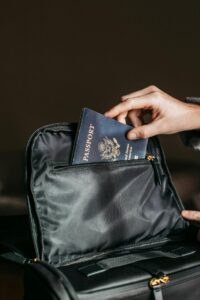Today, let’s delve into an important topic that often gets swept under the carpet – VAWA immigration law. Loads of people suffer abuse every day. It’s even more difficult when the abused can’t take action because their stay in America is dependent on their relationship with the abuser. This is where the VAWA immigration law comes into play: to help such people acquire permanent residence in the United States without the help of their abusive partners. But what is this law? How does it work? We’ll find out in this article.
What is VAWA Immigration Law?
Firstly, VAWA stands for the Violence Against Women Act. However, the presence of “women” in its name doesn’t necessarily mean that it is targeted only at women. Instead, it is targeted at victims of abuse, irrespective of gender. The Violence Against Women Act of 1994 and its subsequent reauthorizations amended the Immigration and Nationality Act (INA). INA was amended in VAWA to allow abused children, spouses, and other dependents of U.S. citizens and permanent residents to self-petition for lawful immigration into the United States. The abused filing for migration under this act is referred to as a self-petitioner or a VAWA self-petitioner.
This type of petition falls into the Widow(er), Amerasian, or special immigrant category and requires self-petitioners to fill out Form I-360. Once approved, the Form I-360 will rank petitioners in the following immigrant classifications:
- Immediate relative
- Family-based preference category.
Thus, it grants such people eligibility to apply for the LPR status.
VAWA Eligibility Criteria
Once you understand the VAWA immigration law and what it’s about, the next step is to know whether you’re eligible. This is an easy step, although we often advise people to hire an experienced immigration lawyer to help them review their case. An experienced immigration lawyer will tell you whether you’re eligible and offer you different options where applicable. Let’s review some of the eligibility requirements for this immigration status and how you can go about them. Note that you’ll need to prove that you meet all the eligibility criteria for both VAWA and green card status to apply for VAWA immigration. You’re eligible if:
- You are a direct or indirect victim of domestic abuse from your relative. Such a relative must be a U.S. citizen or a lawful permanent U.S. resident.
- The United States immigration law further requires you to provide irrefutable proof that shows you as a victim of such abuse or cruelty from the abuse. The law allows you to file even if the abuser was yet to get their status before the beginning of the abuse. You can also file if they’ve lost their citizenship status.
- You must also provide proof that shows that you lived or you’re living with the abuser during the time of the abuse.
- You must also be a present resident of the United States. However, there are a few exceptions to this aspect of the law. For example, you’ll be allowed to apply from another country if your abuser is under the employment of the U.S. government.
- You must also provide proper proof that you entered your marriage to a U.S. citizen in good faith. (Assuming you’re married to the abuser). This means you’re not married to your spouse for the sole purpose of receiving a green card.
- You must also be a person of good character with a proven track record. You can get a certificate from the police to prove this.
Grounds for Inadmissibility
Again, it’s important to note that the VAWA immigration law includes grounds for inadmissibility into the United States via this route. Some of the reasons that may affect your eligibility to enter the U.S. through this route include:
Criminal history
Applicants with a criminal history in the United States or records of immigration violations may not be eligible for a visa under this law. Even if your violation is minor, you may still face a tough battle applying for a U.S. visa through this route.
The United States immigration authority would also check to ensure that you entered the country legally in the first place. They also want to ensure that you do not stand the risk of becoming a public charge. Immigrants that fall into this category are immigrants who will rely heavily on government benefits to survive here.
The authorities understand that different petitioners have different stories and challenges. As such, allow inadmissible petitioners who became inadmissible after being abused to apply for waivers for their inadmissibility. If your waiver application is approved, you’ll be eligible for a visa under this law, irrespective of the reason for your inadmissibility.
Self-petitioners under the VAWA immigration law category would not be subject to most adjustment bars that applicants face under other categories. Please note that the USCIS typically bar applicants in other application categories if they:
- Have any history of violating immigration laws
- Have been found guilty of illegal immigration into the U.S.
The Coleman Law Group Can Help You
Navigating the complexities of the VAWA immigration law is already a formidable challenge. This is where the expertise of an experienced attorney becomes invaluable. The experts at Coleman Law Group will offer adequate guidance through the intricate processes, ensuring timely and accurate documentation. Our support extends beyond legal services. We also provide emotional comfort and all the aid you’ll need to make informed decisions about your future. Contact us now to learn more.



